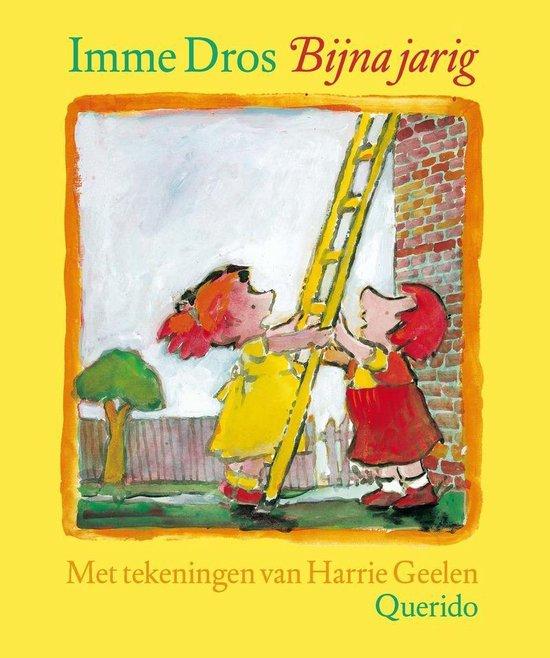Imme Dros
Imme Dros (Texel, 1936) studied Dutch language and literature in Amsterdam, where she met her husband, illustrator Harrie Geelen.
About the Author
The isolation of Texel island life and the need to make choices are recurring themes in Dros’ work. Influenced by her highly praised translation of Homer’s Odyssey (1991) she wrote some interesting youth novels related to these ancient tales. She is currently retelling a number of Greek myths.
In Annelie in the Depths of the Night (1988) these themes are interwoven into a fantasy about fear of abandonment. In De reizen van de slimme man (The Journeys of the Clever Man, 1992), De jongen met de kip (The Boy with the Chicken, 1993) and Odysseus, een man van verhalen, the themes of searching and travelling repeatedly coincide.
Her language, for younger and older children, is always careful and often poetic. Dros’ work satisfies the demands of literature, without losing its relevance for its audience, making her one of the most highly acclaimed Dutch authors of children’s books."
More Imme Dros

Annelie in the Dead of the Night
The important role fantasy and symbolism play in 'Annelie in the Dead of the Night' (1987) earn it a place of its own amongst Imme Dros’ generally realist work. Annelie is taken to her Grandmother’s by her father for unclear reasons and for an indeterminate length of time. Grandma is kind and caring and Annelie sleeps in the bedroom her mother occupied as a little girl, which is full of toys and a four-poster bed. But it doesn’t help. The only bed the little girl wants to sleep in is her own.

It’s Almost my Birthday
Plucky pre-schooler Ella can’t wait for her birthday and is terribly curious about the mysterious present up in the attic. When she finds a ladder leaning against the side of the house, Ella climbs up on to the roof with her friend Lucy and looks through the attic window. And then she sees her secret present, which hasn’t been wrapped yet…

The Boy And The Hen
'De jongen met de kip' (‘The Boy And The Hen’) can be read in more than one way, just as Dros’s novel 'Annelie In The Depths Of The Night', . As a parable about the dangers of unlimited power, as a dream in which desires are realized and as a nightmare in which everything dark and gloomy is burched together.

Odysseus, Teller of Tales
With the first sentence of the prologue: ‘Every son is the son of a hero and every hero’s son wants to be just as great a hero as his father, greater than his father’, Imme Dros places her Odyssey squarely in the tradition of the great epic narratives. Odysseus’s wonderings are seen through different eyes, those of Telemachus who was still a baby when his father fought at Troy. There are also the contemplations of the gods who watch the mortals struggle with irony and sometimes with compassion. Obviously Dros could not and would not tamper with the facts of Homer’s narrative, but by viewing the man of a thousand devices through the emotions of Telemachus the old story acquires a new psychological dimension. What’s the good of having a hero for a father if you never get to see him? In the end every son needs a father if he is to become a man.